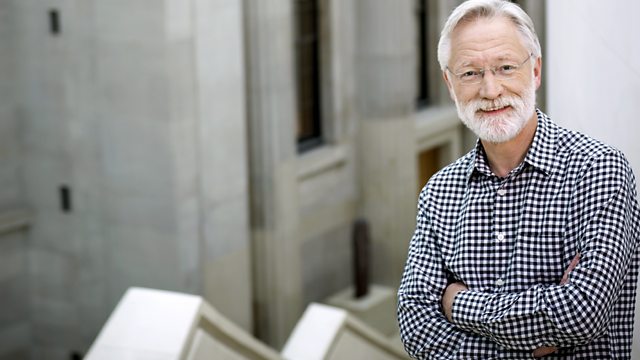
Episode 1
Donald Macleod uncovers the sketchy details of Zelenka's early life as his career begins to take off at the Dresden court, famed both for its cultural riches and religious schisms.
Donald Macleod begins his week-long exploration of one of Baroque music's forgotten heroes. With a name like Zelenka, he may sound like a man created only to make possible the complete A-Z list of classical composers, but this musician's talents added up to so much more. One of Zelenka's great contemporaries, Telemann, was so impressed by his abilities that he was complicit in a plot to steal copies of his work. And none other than J.S.Bach spent much of his time in Leipzig trying to curry favour with Zelenka's employers in the hope of securing an appointment. Yet, until the 1960s, Zelenka was little more than a name, even to the most knowledgeable scholars.
Born in Bohemia, Zelenka's career at the nearby court of Dresden should have been a non-starter. He was brought up a Catholic, trained by Jesuits, at precisely the time Saxony was turning Lutheran. With a passion for church music, his musical career seemed to face a dead end. Then an extraordinary political moment changed his fortunes: the decision by the Dresden royal court to create its own Catholic enclave. The Elector Augustus the Strong, so-called because he could break horse-shoes with his bare hands, now needed composers to write for the royal liturgy, and Zelenka was the perfect man for the job.
As the series unfolds, Donald Macleod traces Zelenka's career at this opulent court, famed for its art collections, lavish festivals, and extravagant religious ceremonies. It sees Zelenka quickly forge a reputation for the most solemn religious celebrations, but also fighting for recognition at court as a succession of other musicians is promoted above his head. It's ultimately a tale tinged with sadness, as Zelenka resigns himself to seeing out his tenure as a relatively low-ranking court musician. But thanks to recent research explored for the first time in the programmes we also get some insight into the high esteem he was held in by his fellow musicians, and only now being recognised by music lovers some two and a half centuries later.
In this first episode Donald Macleod uncovers the sketchy details of Zelenka's early life as his career begins to take off at the Dresden court, famed both for its staggering cultural riches and deep religious schisms.
Last on
More episodes
Previous
You are at the first episode
Music Played
-
![]()
Jan Dismas Zelenka
Ouverture à7 Concertanti: Folie
Performer: Das Neu-Eröffnete Orchestra Performer: Jürgen Sonnentheil (conductor)
- CPO 9996972.
- 5.
-
![]()
Jan Dismas Zelenka
Lamentation 1
Performer: Gilles Ragon (tenor) Performer: Peter Harvey (bass) Performer: Ensemble Stradivaria
- ADES 204312.
- 1.
-
![]()
Jan Dismas Zelenka
Sonata for Oboes, bassoon and continuo no.1
Performer: Ensemble Zefiro
- ASTREE AUVIDIS E8563.
- 01 to 4.
-
![]()
Jan Dismas Zelenka
Capriccio no.3 in F (ZWV 184)
Performer: Das Neu-Eröffnete Orchestra Performer: Jürgen Sonnentheil (conductor)
- CPO 9996972.
- 13 to 17.
Broadcasts
- Mon 18 Jan 2010 12:00����ý Radio 3
- Mon 18 Jan 2010 22:00����ý Radio 3
Beethoven Unleashed – the box set
What was really wrong with Beethoven?
Composers A to Z
Who knew? Five eye-opening stories from Composer of the Week
Five reasons why we love Parry's Jerusalem
What is the strange power of Jerusalem which makes strong men weep?
A man out of time – why Parry's music and ideas were at odds with his image...
The composer of Jerusalem was very far from the conservative figure his image suggests.
Composer Help Page
Find resources and contacts for composers from within the classical music industry.





